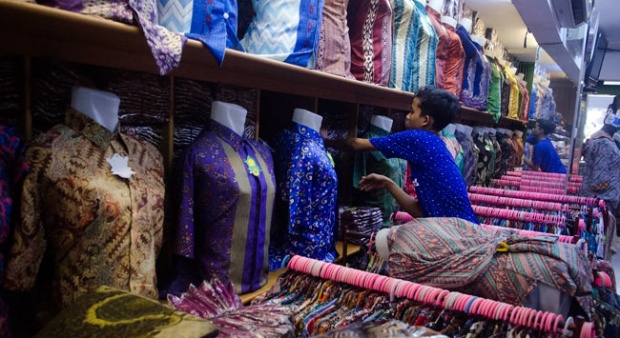
TEMPO.CO, Jakarta - The Trade Minister issues new regulations that ease restrictions on importing batik fabric products. This endangers the future of the traditional batik industry in Indonesia.
The government’s decision to relax regulations on batik imports has the potential to undermine players in the domestic batik fabric industry. Instead of supporting the sustainability of businesses that produce products from that fabric which is a national cultural heritage, this import policy could be catastrophic for industry players, especially traditional batik makers.
This easing of restrictions on batik imports is found in Trade Minister Regulation No. 36/2023 regarding Import Policies and Regulations. The attachment to the regulation excludes batik textile products for government agencies and the public interest from the list of goods whose imports are restricted. In other words, there are no restrictions on the importation of batik textiles for government agency needs and the public interest.
This regulation only requires a certificate from the director-general on behalf of the minister, an order or contract from a government agency, and a certificate of use of goods as provisions for importers who will import batik.
These provisions are different from the old regulation, Trade Minister Regulation No. 86/2015 regarding batik imports, which still included an article on import restrictions. The importer had to fulfill the requirements by having a general importer identification number and a producer importer identification number. Batik imports also had to secure recommendations from the Industry Ministry and the Cooperatives and Small and Medium Enterprises Ministry.
Now importers only need to receive a certificate from the government agency that assigned the procurement task. This kind of mechanism, apart from being prone to collusion and corruption, facilitates the entry of imported batik under the guise of meeting government needs. This also shows that policymakers have no intention of prioritizing domestically-made batik to meet the needs of government agencies.
This new regulation exacerbates the problems being faced by local textile industry players, especially batik producers, who have been competing with imported products for years. Every year, imported batik, the majority of which comes from China, floods the market. The heavy inflow of foreign goods can be seen in data from the Industry Ministry and the Central Statistics Agency (BPS), which states that the value of imports of batik products in 2020 to 2021 increased from US$88.04 million (around Rp1.38 trillion) to US$112.14 million (Rp1.76 trillion).
Even more distressing, imported batik whose motifs imitate local designs are sold at cheaper prices. As an illustration, imported batik clothes sold wholesale in several wholesale centers are priced at Rp40,000-50,000 (US$2.5-3.1) per piece, which is half the price of local products of similar quality. Local batik producers are suffering twice. First, their designs are imitated, and then their market is captured. Moreover, taking illegally imported goods into account, local batik vendors will be increasingly uncompetitive without government protection.
Therefore, Trade Minister Zulkifli Hasan must immediately review this regulation. It is contrary to President Joko Widodo’s commitment to prioritizing local products in meeting the needs of government institutions for goods and services.
On the other hand, the government must also encourage the competitiveness of batik industry players so that they are ready to face an increasingly liberal market. The way to do this is to provide incentives and support so that the local batik industry becomes more efficient, and the selling price and quality can be on equal footing with foreign products.





















